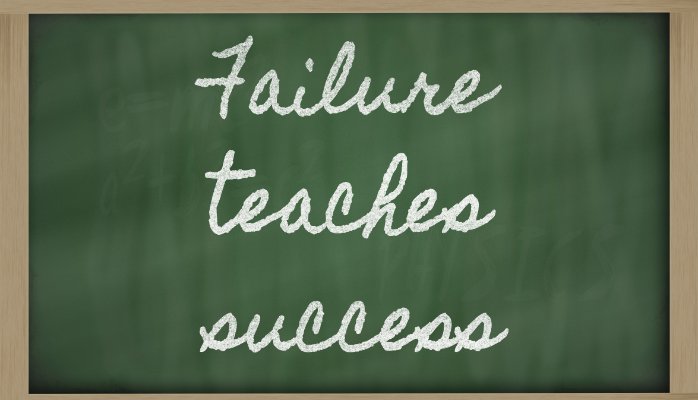
Why Failure is Such a Powerful Tool
If you’re an established entrepreneur, you’ll know the truth of one old adage: You learn a lot more from your failures than your successes.
It’s a neat thing to quote, especially when your next endeavour turns belly up or disappears into the competitive ether without a trace. The big question, however, is what you do with that failure.
If you’re planning something big in the world, whether that’s bringing about world peace or disrupting the market with a ground breaking product, understanding, appreciating and using failure as a tool rather than a concept is vital.
The Reasons Your Business Failed
You may be able add onto several nuanced variations into the mix but at the core of each start-up failure are these 4 key factors:
1. The Team: You didn’t have the right team in place, either to develop and build the product or to push it successfully out into the market and wow your customers.
2. The Market: You either chose the wrong one, misread the market or misinterpreted what was needed right now with respect to what product was needed.
3. The Value Proposition: What you were offering didn’t mean enough or meant nothing to your chosen market. You didn’t push the right buttons.
4. The Business Model: You didn’t have the right processes or infrastructure in place to bring your idea from concept to fruition.
Failure as a Learning Tool
You can learn a lot from other people’s failures. It’s not just about your own. In an ideal world, you don’t want your own business to fail at all. But you can certainly learn from that too, however painful it might be.
1. Control vs Non-Control
There’s another old adage: “God grant me the serenity to accept the things I cannot change, the courage to change the things I can, and the wisdom to know the difference”.
In business, as in life, there are things you can control and others you can’t.
Take the market – however much you want to, you can’t actually control it. You can monitor it, understand it, you might even influence it, but you can’t really change it. On the other hand, you can control how you execute the development and release of your product. Everything in execution has values and standards you, personally, can set.
To truly learn from failure, you need to understand these areas of control and non-control so you can better focus your activities.
2. Measure Your Failures
You don’t find any scientist undertaking an experiment without measuring stuff. As an entrepreneur, you need the same approach. You must measure as much as possible: Everything from the value your customer places on your product to the time it takes them to fall in love it. Metrics help measure success and it helps measure failure. From that you can understand and define what makes a profitable business model.
3. Don’t Be Frightened to Change the Rules
You’re a start-up and, no matter how hard you try, you’re not going to compete on a level playing field with the big corporations and many of your closest competitors. They have mega-buck finances and proven track record, you don’t.
You do, however, have 3 distinct advantages:
- You can move quickly (corporations, for instance, are usually slow moving behemoths at the beck and call of shareholders).
- You’ve got agility – because you aren’t weighed down with a hundred different products and can react more quickly to changes in the market, you can (hopefully) dodge the faster moving bullets that bring a company down.
- Finally, you’re new. You don’t have hangovers such as old software or a tired, desperately-in-need-of-a-rethink business model. Freshness counts in the start-up world.
4. Face Failure Fast
This combination of speed, agility and lack of a damaging legacy, means you have the potential to act quickly and manoeuvre intelligently when faced withfailure. The quicker you acknowledge the possibility of failure, however, the quicker you can do something about it and the more likely you’ll be able to push out on the other side.
5. Action on Failure
It’s not all about speed. Facing failure is one thing, choosing the right option to cope with it is another. When you are hit with a problem you can either pivot around, persist and push through, pause and refine everything you’re doing or push the accelerator and speed things up to get over the bump in the road. Which you choose is going to depend on your skill, experience and maybe even your gut feel.
6. Luck vs Timing
Some things will happen by chance – you’ll get lucky and that can hit you any time. Of course, you can also get hit by bad luck. Good timing is one of the strongest tools in the entrepreneurial armoury. Your business life may seem like a delicate balancing act between the two but failure teaches us that timing is something that can be developed by experience and learning from past mistakes.
7. Build a Team You Trust
Finally, here’s the real key to coping with success and failure: You need to put together a team you trust and which shares your ethos. They must be prepared to embrace failure when it happens and see it as an opportunity, not a huge stumbling block. Hiring and bringing different members of your team together is something you need to learn to do effectively.





Leave a Comments